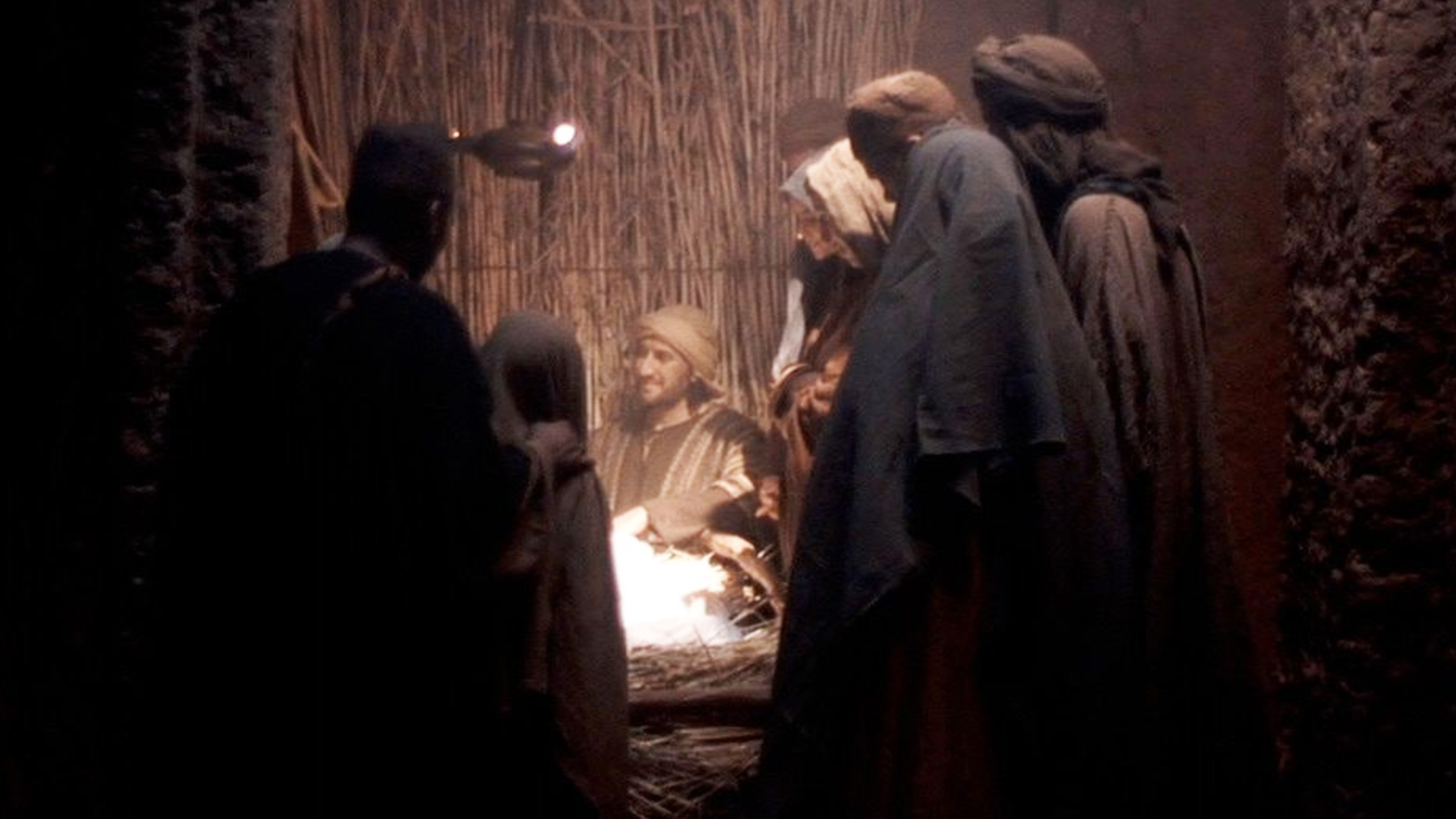How can he feel the burdens we bear?
Yes, we believe that God knows all things, but how can God experientially know just how hard life can sometimes be for us? After all, he’s God, and so the future isn't in doubt for him like it feels for us. He knows all things and can do all things; so how can he struggle with the frustration, helplessness, and uncertainty we feel in times of grief, loss, and tragedy?
We are limited. We are mortal. Sometimes life and faith are hard because we don’t know what God knows. We can’t see around the corner of our dilemmas as he can. Yes, I know God knows all things, but how can he struggle with the emotions the way we do?
I don’t know if you have ever thought such things, but many people who have talked with us in their times of tragedy and loss have voiced them, or at least something similar to them. That’s what make’s Jesus' birth so important. As James says in today’s video, “God, through Jesus Christ, became one of us!”
|
|
|
If you can't see the video, and you sure don't want to miss it, view it online. For additional ideas to consider and some things to discuss with others, we encourage you to see the Study Guide. |
Jesus’ birth was an explosive event politically. We will cover some of the dynamics of why it was such a revolutionary event in the coming weeks. But today, we want to settle into the volatile truth that James expresses in the video: “God, through Jesus Christ, became one of us!” This truth is the foundation of "Finding our Story in God’s Story." Since we could not ascend to God and be with God as one like God, he came to us as one of us. He bent history, both human history and "HIStory" to find us so that we could find life in him. Matthew knew all the names and titles of Jesus. So, he refers to Jesus at the beginning of his gospel story using these terms and titles:
- Jesus the Messiah, the son of David, the son of Abraham (Matthew 1:1).
- Jesus the Messiah (Matthew 1:16-17).
- A son (Matthew 1:21).
- Jesus who will save his people from their sins (Matthew 1:21).
- King of the Jews (Matthew 2:2).
- The Shepherd of God's people (Matthew 2:6).
- Ruler of the Jewish people (Matthew 2:6).
- My (God’s) son — a fulfillment of prophecy (Matthew 2:15).
- A Nazarene — a fulfillment of prophecy (Matthew 2:23).
Matthew had an exalted understanding of Jesus’ identity. He wants us to know that Jesus fulfilled all of the prophetic expectations of the Messiah.
Matthew also emphasized that Jesus entered our world as "God with us" by referring to Jesus as Immanuel. Matthew further wants us to know that Jesus is God as one of us. Near the very beginning of his gospel story, Matthew referred to Jesus as “the child” (Matthew 2:8, 9, 11, 13, 14, 20, 21 — Note that in verses 13 and 20, the words occur twice.). That is Matthew’s way of reminding us that when God chose to join us in our world, he came as a helpless and vulnerable child. He needed parents to love, protect, and train him. Such a thought almost seems blasphemous, yet it is the specific emphasis of God’s inspired writer! God didn’t come to our world as a heavenly tourist with special arrangements to keep him safe and to give him special treatment. He entered our world through human birth so that we could share in the promise of his story through a new birth (John 1:9-13; John 3:3-7).

What difference does this truth make in the grit of day-to-day life?
Facing our limits as mortal flesh, God becoming human in Jesus changes everything for us. We know that God feels our hurt and shares our sorrow. He understands our confusion, frustration, and loss. And, he knows this from his human experience as well as his omnipotence. Even now, Jesus is at the Father's right hand communicating our feelings to the Father as one who is always interceding for us (Hebrews 7:25; Hebrews 2:14-18; Hebrews 4:14-16). At the same time, the Holy Spirit takes the emotions we cannot verbalize and brings them to the Father fully expressed in all their emotional and inutterable depth as he "intercedes for us through wordless groans" (Romans 8:26-27).
The story we celebrate at Christmas can get lost in the sentimentality and sweetness of the season. We don't want Jesus lost in Christmas lights! That is just one of the many reasons we are focusing on Jesus birth, now when it is not Christmas. The story of God becoming one of us in Jesus is made up of the threats, hardships, fears, and grit of the real world. God entered this world in Jesus to be with us and one of us so that we can be with him and one of his. Nothing matters more than that when our lives face the stark realities of our mortality.
Jesus being "the child" in Matthew's gospel means we can be God's children — forever! We want to invite you to continue with us in our journey deeper into God's story in each of our lives as we live as our Father's children!
 |

Special thanks for the use of images related to Jesus' ministry from The Lumo Project and Free Bible Images for use on our blog post, "Finding My Story in God's Story"!










Reader Comments
Archived Facebook Comments